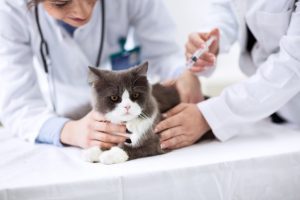
One of the most common surgeries vets carries out is fixing damaged bones in pets like pet dogs and cats. Concerning musculoskeletal problems, veterinarians are just as likely to rely on orthopedic surgery as human doctors. Injuries to the joints, such as torn ligaments, or degenerative conditions, such as hip dysplasia, can be treated well with orthopedic surgical treatment.
Typical Orthopedic Issues that Require Pet Surgery
It’s reasonable if you’re on the fence about whether or not your pet requires orthopedic surgery. Here are the leading four canine orthopedic issues that may need surgical intervention:
Hip Dysplasia
Your pet may be at risk for developing hip dysplasia due to a genetic predisposition. Daily anti-inflammatory medicine is the standard treatment; however, if your pet develops arthritis in the joint, titanium replacements might be essential.
Hip replacement surgery is prolonged and expensive, but it can enhance your pet’s quality of life. There are several obvious signs that your pet might be struggling with hip dysplasia, consisting of:
- The problem with high-impact activities like jumping, running, or stair climbing
- Walking with a sway
- Unusually large gap between your pet’s legs
- Minimal capability to move and limber up
- Absence of strength or endurance in the rear
Picture if pain relievers and other medications no longer help your pet. Need to that occurs, a referral to an orthopedic cosmetic surgeon for a joint replacement might be in order.
Patellar Dislocation
The kneecap can likewise be described as the patella. When an animal’s patella isn’t working correctly, it may dislodge from the groove that keeps it in place. This is generally the result of a too-shallow groove.
The most typical canine knee abnormalities are patellar luxation or dislocation of the kneecap, which is especially typical in little and toy pet breeds. Most cases of patellar luxation can only be fixed by veterinary knee surgery.
There are a couple of indicators that your pet might be struggling with a dislocated knee:
- Apparent pain
- Biting or licking the knee
- Hopping
- Reluctance to walk
- Inability to put any pressure on the leg
Tearing of the Cruciate Ligament
A tear in the anterior cruciate ligament, or ACL, is a typical knee injury. ACL tears, unlike sprains, do not heal with time or treatment.
A cruciate ligament rupture in an animal, like a torn one in a human, requires surgical repair work to prevent the development of severe and debilitating arthritis. Your veterinarian can help you choose which of several cruciate ligament surgical treatment alternatives is best for your pet. You can also check out this link to learn more about pet surgery.
Any of the following may show that your pet has a torn cruciate ligament:
- Irregular posture while seated
- Uncontrolled stumbling might happen at any time throughout a job.
- Back-leg tightness, both sides
- Knee joint thickening and edema
- Clicking
- Licking or biting the knee joints
If you are looking for pet services, such as a doggy daycare in Danbury, you can check out the link to gain more insights about it.
To End
Expect you and your doctor to figure out that your pet’s suffering is caused by injury to their musculoskeletal system. Because of the case, it is crucial to consider orthopedic surgical treatment. Think of seeing your pet hobbling or in obvious pain when on the go.
This might be an indicator of some bone tissue. It is to your pet’s benefit to get a correct medical diagnosis and treatment to end their suffering and improve their lifestyle.









